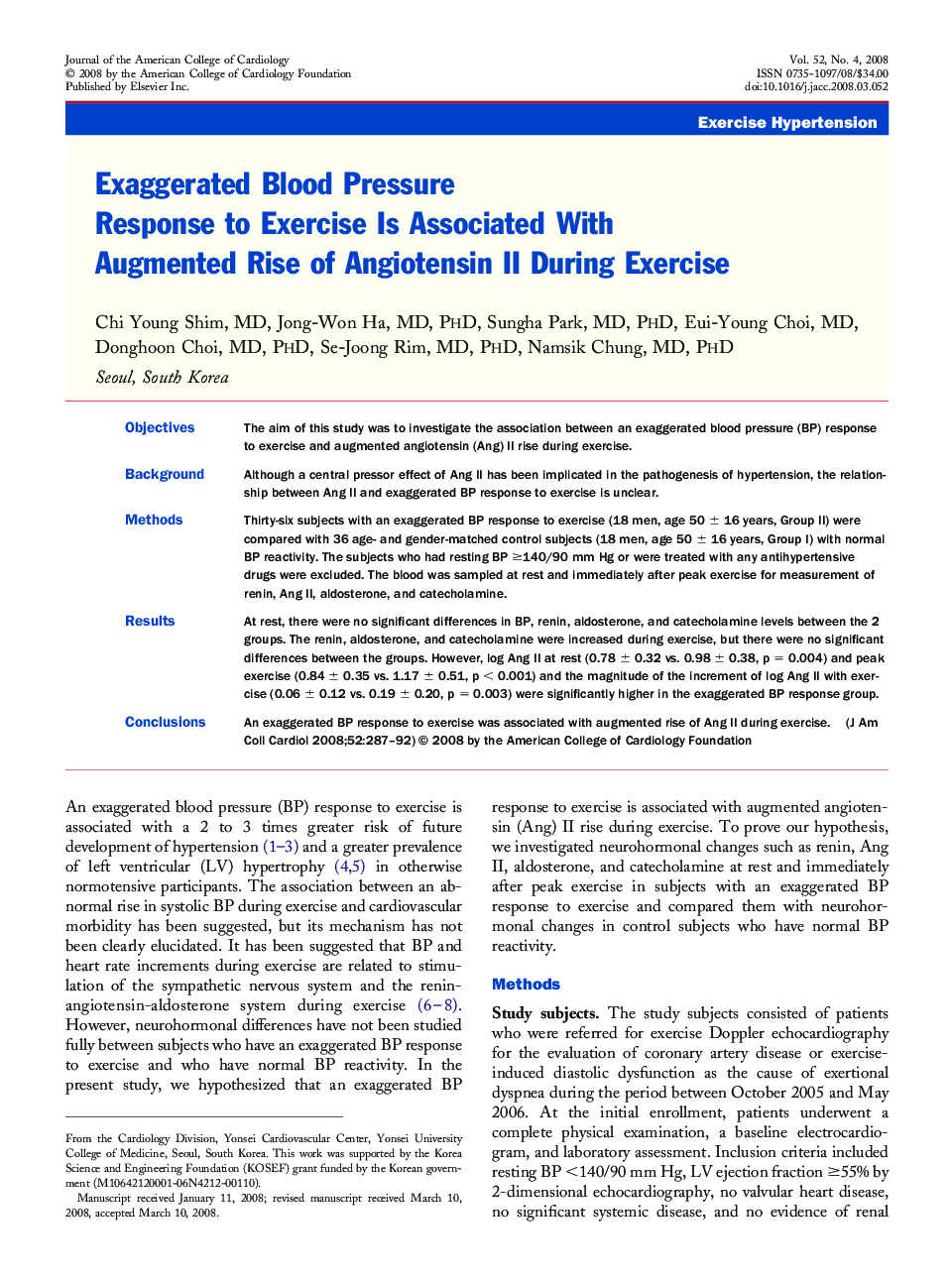| Article ID | Journal | Published Year | Pages | File Type |
|---|---|---|---|---|
| 2950084 | Journal of the American College of Cardiology | 2008 | 6 Pages |
ObjectivesThe aim of this study was to investigate the association between an exaggerated blood pressure (BP) response to exercise and augmented angiotensin (Ang) II rise during exercise.BackgroundAlthough a central pressor effect of Ang II has been implicated in the pathogenesis of hypertension, the relationship between Ang II and exaggerated BP response to exercise is unclear.MethodsThirty-six subjects with an exaggerated BP response to exercise (18 men, age 50 ± 16 years, Group II) were compared with 36 age- and gender-matched control subjects (18 men, age 50 ± 16 years, Group I) with normal BP reactivity. The subjects who had resting BP ≥140/90 mm Hg or were treated with any antihypertensive drugs were excluded. The blood was sampled at rest and immediately after peak exercise for measurement of renin, Ang II, aldosterone, and catecholamine.ResultsAt rest, there were no significant differences in BP, renin, aldosterone, and catecholamine levels between the 2 groups. The renin, aldosterone, and catecholamine were increased during exercise, but there were no significant differences between the groups. However, log Ang II at rest (0.78 ± 0.32 vs. 0.98 ± 0.38, p = 0.004) and peak exercise (0.84 ± 0.35 vs. 1.17 ± 0.51, p < 0.001) and the magnitude of the increment of log Ang II with exercise (0.06 ± 0.12 vs. 0.19 ± 0.20, p = 0.003) were significantly higher in the exaggerated BP response group.ConclusionsAn exaggerated BP response to exercise was associated with augmented rise of Ang II during exercise.
